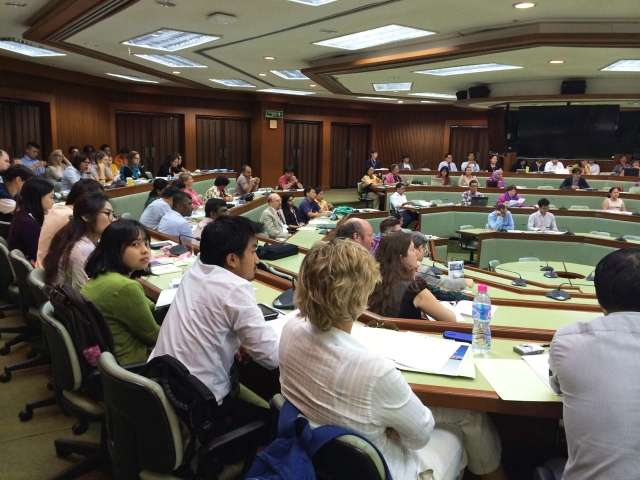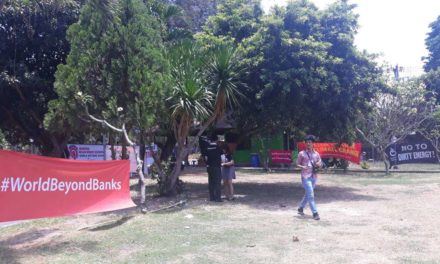Bangkok, 4 September 2014 — A conference on the role of governments in safeguarding human rights across borders was held this week at Chulalongkorn University in Bangkok with the participation of over 160 experts, activists, and political figures from countries including Thailand, Cambodia, Myanmar, Vietnam, the Philippines, Indonesia, Malaysia, Singapore, Nepal, India, Sri Lanka, China, Japan, Korea, Ecuador, Chile, South Africa, Uganda, Egypt, France, the Netherlands, Germany and the United States.
The participants represented national, regional and global organizations and networks concerned with economic, social and environmental justice issues. Some of those are: the ASEAN Intergovernmental Commission on Human Rights, the Center for International Environmental Law, Center for Women’s Global Leadership, FIAN International, Focus on the Global South, the Indonesian National Human Rights Commission, International Rivers, Jubilee South, and Transnational Institute.
“This conference is important because human rights principles and values are under attack by the new transnational business class that wishes to deny justice by using their unbridled power. If we don’t question and challenge that power, we lose,” said Dorothy Guerrero of Focus on the Global South.
The public portion of the conference on Tuesday, September 2, included various panels and working group sessions dedicated to discussing the importance of the extraterritorial obligations of States (ETOs) and sharing lessons on their implementation in Asia.
Speakers noted that attempts by States to interpret human rights obligations as being applicable only within their own borders have led to serious gaps in protections – especially for the most vulnerable groups like migrants, peasants, women, and indigenous communities. They discussed the 2011 “Maastricht Principles on Extra-Territorial Obligations” and other mechanisms designed to boost accountability and enforcement in the area of human rights and lamented the problem of corporate capture of governance in various processes and arenas of decision-making.
On September 3, participants held a strategy meeting regarding the Binding Treaty process at the United Nations, as well as corporate accountability, finance, international financial institutions, trade and investments, and access to land and other resources.
The conference, entitled “Rights-based Governance Beyond Borders: The Role of Extraterritorial Obligations,” was organized by: the Asia-Pacific Forum on Women, Law and Development, the ETO Consortium; Focus on the Global South; the Master’s of Arts in International Development Studies at Chulalongkorn University; and the Stockholm Environment Institute.
For more information, contact [email protected] or (+66) 098-374-2418.








